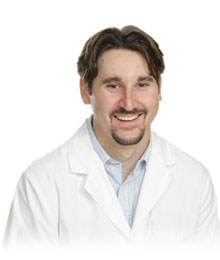Dr. Brian Gregory
Undergraduate at University of Arizona
Graduate at Harvard Grad School
Post Doc at The Salk (Jonas Salk)
“Global Analysis of RNA-protein interactions throughout the transcriptomes of two human cell types”
Interview with Dr. Gregory:
Dr. Gregory’s current position is at UPenn
He became interested in the field by doing graduate work in biochemistry and bacterial genetics, where he studied mutated amino acids in sigma section 74. He wanted to get a more global look into transcript regulations.
The balance of work and life
Dr. Gregory works a lot but has two small children so he works hard when at work, and does not bring his work home with him.
Current position/research
Dr. Gregory started to study genomics and RNA silencing in plants, this approach is meant to look at dsRNA globally. They were able to find structural information about RNA. In addition they used ssRNA nuclease unpaired base information for a global study. The absence of bound proteins allowed it to be applied to human cells, they used UV light to cross link. They were also able to cross link RNA’s to proteins to find the footprint of all RNA-protein interactions. They found that non Watson-crick base pairing of U and T is not as strong, this can be seen in Drosophila where heterochromatic modifications are present (dsRNA becomes smRNA). With regard to mutations in the lab, they are generally ignored, but the mutation rate can be used in results. They allow no more than 5 mutations per 50 base pair read. In addition, RBP binding sites of mRNA’s have less genetic diversity, the sites are maintained at a specific sequence.
His field in the future
The government pays a lot of money for Mod and Code, but there are papers for comparison to data sets that already exist, so that money could be put to better use. They can also use the power of data for new discoveries.
Up and Coming
-Sequencing and diagnostic tools
-Computers must improve, better processors would increase data sequencing and processing speed
-Computational biology must keep up as well
-Developing new genomics approaches, ex: mass spec machine
-Genomic medicine
Potential careers?
-Engineering is a rapidly growing field where development must happen in computers, especially computer storage (better cooled storage units and computers).
-Bioengineering- new sequencers are needed
-Mass spec designers
Advice
-Future biologists must have a background in genomics
-Computer programming is heavily linked to computational biology
-Databasing is important
-The more efficient, the better.
Post Lecture Jeopardy:
Topic 1: Papers
200- Describe the 3 levels of folding?
Primary- sequence of nucleotides Secondary- base pair bonds (double helix) Tertiary- folding
400- What is chromatin?
It is RNA/DNA and proteins
600- how does chromatin affect gene expression?
Heterochromatin is tightly packed and the genes are not expressed. Euchromatin is loosely packed and the genes are expressed.
800- RNA silencing and genome regulation article- what is a transposon?
Selfish DNA entity capable of using a genome as an ecosystem where it can survive and proliferate
Topic 2: Lecture
200- What is ssRNAase?
Enzyme that degrades single stranded RNA
400- What is the central dogma of genetics?
(DNA) DNA->transcription->RNA->translation->protein
600-Does mature mRNA have introns?
NO
800- What are two ways to crosslink RNA and proteins?
UV and formaldehyde
Topic 3: Genomics
200- What does Dr. Gregory use genomics to study?
Ds/ssRNA and secondary structure
400- What is splicing?
Removing introns, non coding regions
600- What is secondary structure?
Base pair linkage
800-(1000)- RNA binding domains bind to _______ or _______.
A sequence or a structure.
Topic 4: Interesting Facts
200- Where is Dr Gregory from?
Phoenix, Arizona
400- What is one subject we should all take before graduating?
Computer programming
600-What do you do about mutation rates in the study of genomics?
You ignore them.
800- What career do you think Dr. Gregory thinks we need more of?
Bioengineering/computer engineering because processor speeds are not able to keep up with sequencing
